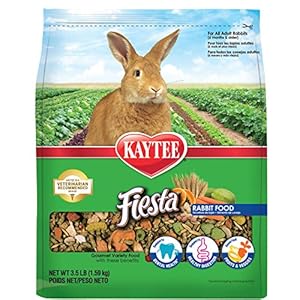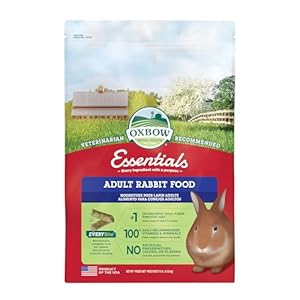On the finish of 2008, he was laid off throughout the recession. He spent simply over half a 12 months again on the farm after which received a place as a contract agricultural advisor in Afghanistan. Not like most People within the nation, who lived on army bases, he lived amongst locals in Afghan villages and taught residents find out how to develop, trellis, and promote grapes—to provide them a substitute for rising poppies for the opium commerce.
“I wouldn’t say it was a waste of time,” he says, “however I actually put my life in jeopardy for one thing that actually wasn’t going to make a distinction.” He and his workforce would return to villages six months after that they had left, and the Taliban could be again in management and the villagers again to rising poppies.
After a 12 months in Afghanistan, Brown earned a high-level safety clearance and was capable of get a job with the Division of Protection, which he held for 16 years, till June 2023. The entire time he labored for the federal government within the D.C. space, Patrick would commute to North Carolina each weekend to assist his dad and mom with the farm.
He quickly realized that on the farm, he felt alive, and comfy, in a approach he didn’t elsewhere—in a go well with, at conferences, jet-setting the world over. “Coming right here, the place nobody is aware of I’m right here—I’m simply out right here engaged on my tractor—I’m simply having fun with the panorama and the environment and the atmosphere.”
He secured his current job in June 2023, as director of farmer inclusion for Nature for Justice, and has flipped his schedule. Now he spends his weekdays in North Carolina on his farm and touring the state to talk with different farmers, connecting them with incentives, and his weekends in Virginia together with his household, the place his spouse and their son, born in 2013, nonetheless reside. It’s a two hour and 52-minute drive from doorstep to doorstep, he says.
Whereas for the final 20 years he labored a profession job to get by and help his household, “I’m 100% ag centered now,” he says. And his full-time Nature for Justice job offers him a bonus that his father, who depended solely on the farm for earnings, didn’t have. He can experiment with completely different crops and approaches and buy fashionable gear to assist him do the work.
He realizes he has an enormous alternative within the land that his ancestors stewarded and handed all the way down to him. “I’d be a dummy—which I used to be for the final 20 years—by not taking benefit,” he says. And the information and expertise he developed in school and whereas working for the federal government have made him savvy at navigating the system to his personal profit, and the advantage of others working the land.
Opting Out of a Discriminatory System
Yesterday, whereas he was harvesting a area of wheat, the belts in Brown’s John Deere mix seized up, and the large machine jammed. This morning, whereas he waits for assist, he reaches a pitchfork up right into a again compartment of the machine to drag out the straw that received caught. “Oh, what a day,” he says. “I can’t minimize wheat till I get that mounted.”
In the meantime, throughout the yard, within the shade of the willow oak, Brown’s two nephews, Justice and Isaiah White—his older sister’s children, each of their mid-20s, each full-time workers on the farm—sit on overturned buckets at the back of a low trailer amidst a sea of purple kale leaves. The trailer continues to be hitched to the outdated orange tractor they used as they harvested two lengthy rows from a close-by area.
Throughout the street, peacocks shriek. They should be pets? Justice and Isaiah don’t know for certain, however, “When you scream loud sufficient, they’ll scream again,” Isaiah says, reaching down to pick a handful of the deep purple leaves, then clipping their stems and fastening a rubber band across the bundles. A FreshPoint Sysco truck shall be choosing up as many containers as they’ve packed tomorrow morning, so Patrick has requested them to work rapidly.
Patrick takes his place because the steward of his household’s land severely. “My major mission is to verify this land that I inherited has the capability to generate earnings in agriculture for future generations—whether or not or not it’s my nephews, their youngsters, my son, or his youngsters,” he says.
Earlier generations relied totally on commodity crops for his or her earnings, however Patrick takes a special strategy. Considered one of his key tenets is planting a range of specialty crops that may each provide his group with recent greens and create quite a lot of earnings streams—and to promote CSA shares initially of the rising season to offset the farm’s upfront prices.
Whereas his predecessors—and most farmers—take out loans or depend on credit score to run their companies, borrowing in opposition to their anticipated harvests to buy gear, seeds, and different provides, Brown has by no means borrowed cash or relied on loans or grants. He has seen firsthand the hurt that debt could cause farmers, particularly farmers of shade.
The USDA has a protracted historical past of discrimination in its allocation of farm loans—confirmed by quite a few agency-commissioned research. Within the Eighties and ’90s, North Carolina farmer Timothy Pigford and different Black farmers filed a category motion lawsuit in opposition to the USDA, saying the company—by way of its native county committees—would deny Black farmers loans or drive them to attend longer for approval than nonminority farmers. Moreover, the go well with says, the company failed to research and reply to allegations of discrimination.
Patrick noticed his father expertise the USDA’s discriminatory lending practices. The company was incessantly sluggish to approve Arthur’s request for loans and disperse the cash. “They’d proceed to ask for extra info, extra documentation, with a purpose to really feel snug giving him a mortgage each 12 months,” Patrick says.
The delays in cost may very well be devastating. With tobacco as his principal money crop, Arthur wanted to buy fertilizer earlier than December and put together the land for planting by February or March. When the mortgage cash was delayed, he must fertilize and plant late, and the farm would function beneath stress all 12 months, usually experiencing low yield—and lowered earnings—in consequence.
In 1999, a $1 billion settlement was negotiated within the Pigford circumstances. Claimants had been speculated to obtain funds quickly after, however due to complicated paperwork and processing points, only a few did. Congress appropriated cash for an extra spherical of payouts in 2010 however related points abounded.
Final July, the USDA issued $2 billion in monetary help to farmers it had discriminated in opposition to via its lending packages; earlier than that, nonetheless, most Pigford claimants had obtained payouts of $50,000 or much less, only a tenth of what a median midsize farm spends in a 12 months, and fewer than 3 p.c—425 farmers whole—had obtained the debt reduction they had been entitled to as a part of the lawsuit.
The older Black farmers who had been concerned with the Pigford circumstances remorse having gotten entangled with the economic agriculture paradigm and the USDA, says McCurty of the Black Belt Justice Middle. “The elders consult with the USDA because the final plantation,” she says. “It truly is modern-day sharecropping. It’s entrapment, to allow them to by no means have financial autonomy.”
In a area the place many residents endure from diet-related sicknesses and should not have easy accessibility to grocery shops promoting recent meals, Brown gives vegetable containers via a group supported agriculture (CSA) program.
Largely as a result of systemic discrimination, the variety of Black farmers within the U.S. has fallen precipitously during the last century. Between 1910 and 2017, the proportion of Black farmers declined from 14 p.c of all farmers to lower than 2 p.c. Right this moment, the roughly 40,000 Black farmers remaining in America personal lower than 1 p.c of the nation’s farmland. “I can rely on one hand the quantity there are in Warren County that’s nonetheless row cropping, not simply yard gardening,” Patrick says. “There’s hardly any of us left.”
And the disparities proceed: In 2022, the USDA granted direct loans to solely 36 p.c of candidates who recognized as Black in contrast with 72 p.c of candidates who recognized as white, in accordance with an evaluation by Nationwide Public Radio. That’s why Patrick has opted out of the mortgage system. “I don’t wish to need to be praying and hoping that to ensure that me to have a superb crop within the floor this 12 months, I’ve received to attend for cash from USDA to plant on time,” Patrick says. “I noticed my dad take care of it. And I promised I might by no means function this farm like that.”
On this usually hostile atmosphere, the farmers of shade who do stay help one another, sourcing produce from each other to fill out their orders and serving to one another with damaged gear and different points.
Hedgepeth comes over within the afternoon to assist Patrick repair the mix, which continues to be clogging up each time Patrick tries to run it down a row of wheat. Patrick adjusts the bolts that management the straw-release door on the again of the machine so it’s open 6 inches wider than it was, after which he and Hedgepeth climb the five-step ladder up entrance.
Patrick enters the glassed-in cockpit and fires up the machine, releasing a groan and a plume of smoke into the air. As he advances down a brand new row, Hedgepeth hangs off the facet of the deck to see if the mix is releasing the straw onto the bottom prefer it ought to. He offers Patrick a thumbs up.
Lastly, the mix is mounted, and—after a day’s delay—the harvesting can proceed. Hedgepeth enters the cockpit and takes the seat beside Patrick. Up excessive over the sector, the 2 farmers—one older, one youthful, each with an intimate information of this land—sit facet by facet as they run up and down a number of extra rows, leaving a row of freshly minimize straw of their wake.
On the bottom on the finish of the run, Hedgepeth picks up a harvested kernel and examines it intently. He nods approvingly. “I imagine that’s nearly as good as you’re gon’ get,” he says.
Farming for Local weather
It’s late August, and it’s scorching. Sweat drips down my again. I stroll with Patrick over fields that a number of weeks in the past held onions, peppers, okra, beans, sugar peas, and different greens. His boots crunch over dry soil and useless grass.
“Usually by this time of 12 months, by the second week of August, we’d have fall crops within the floor,” he says. However the fields stay empty. “We’re too afraid that if we put fall crops within the floor like we’ve completed the final 15 to twenty years, we’d lose them to warmth.”
When Patrick took over the farm, he determined to take it in a brand new route. Involved in regards to the altering local weather, Patrick is attempting to make use of his land as a drive for good—via methods that additionally make monetary sense. A key to this strategy is rising hemp, which the federal authorities legalized in 2018 after prohibiting its cultivation for a number of many years, spurred by the conflict on medication and its affiliation with marijuana. (To notice: Hemp comprises solely .3 p.c of psychoactive THC and doesn’t produce a excessive.)
Trending Merchandise










